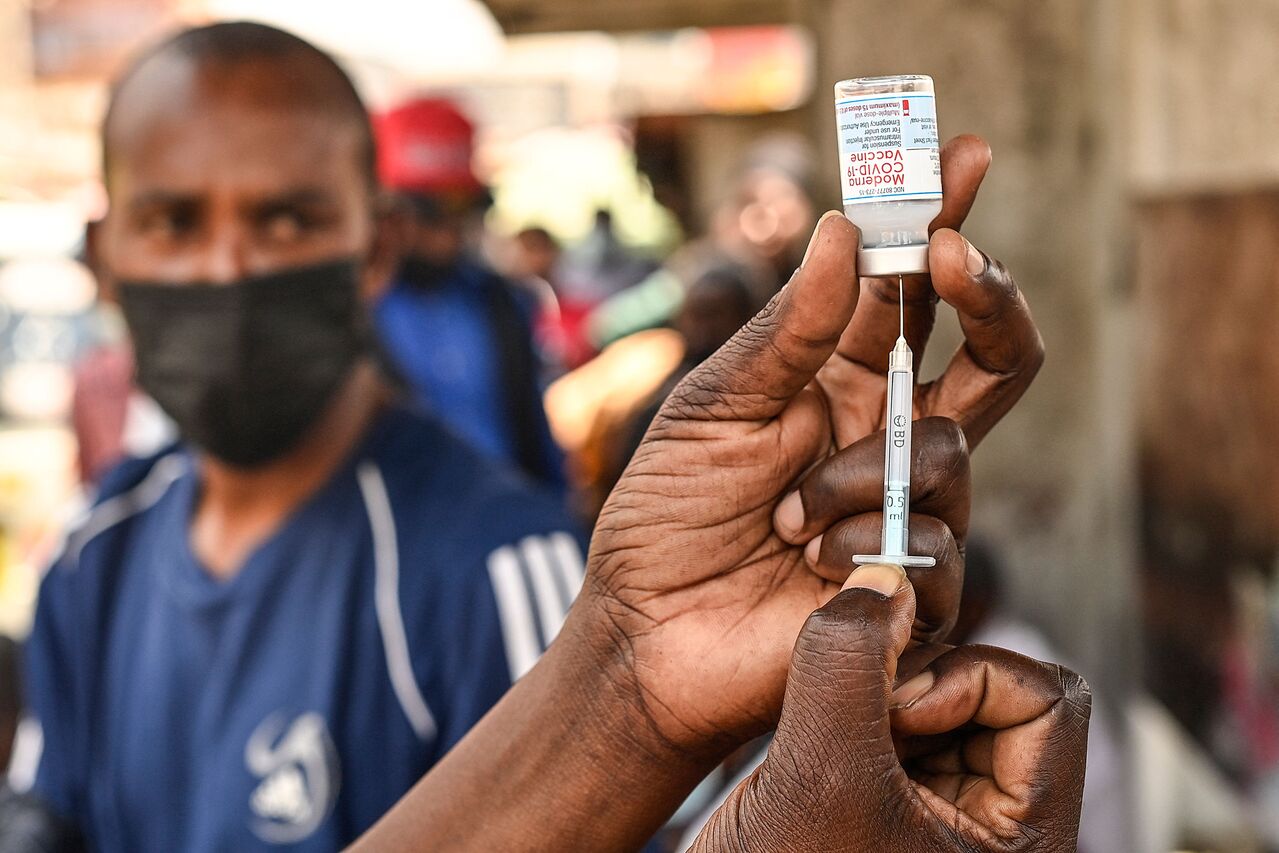WHO set to vaccinate 40 per cent of population of every country against Covid-19 by end 2021
Sign up now: Get ST's newsletters delivered to your inbox

According to WHO's records, more than 6.4 billion vaccine doses have now been administered globally.
PHOTO: AFP
Follow topic:
GENEVA (XINHUA) - The World Health Organisation (WHO) announced on Thursday (Oct 7) an initiative to vaccinate 40 per cent of the population of every country against Covid-19 by the end of this year and 70 per cent by mid-2022, by prioritising vaccine delivery to low-income countries, particularly those in Africa.
"Today, WHO is launching the Strategy to Achieve Global Covid-19 Vaccination by mid-2022," said WHO director-general Tedros Adhanom Ghebreyesus at a press briefing. "The strategy outlines the road we must all take together to achieve our targets of vaccinating 40 per cent of the population of every country by the end of this year, and 70 per cent by the middle of next year."
According to Dr Tedros, achieving these targets will require at least 11 billion vaccine doses, which is an allocation problem instead of a supply problem.
"With global vaccine production now at nearly 1.5 billion doses per month, there is enough supply to achieve our targets, provided they are distributed equitably," he said.
According to WHO's records, more than 6.4 billion vaccine doses have now been administered globally, and almost one-third of the world's population is fully vaccinated against Covid-19. However, low-income countries have received less than half of 1 per cent of the world's vaccines. In Africa, less than 5 per cent of people are fully vaccinated.
Earlier this year, WHO set a target for all countries to vaccinate 10 per cent of their populations by the end of September, but 56 countries did not make it. That has prompted UN Secretary-General Antonio Guterres to join the WHO chief to launch the latest strategy.
"Vaccine inequality is the best ally of the Covid-19 pandemic," said Mr Guterres, but "through dose sharing, swaps, technology transfers and other priority actions, it is possible to reduce deaths and minimise suffering, prevent health systems from being overwhelmed, resume social and economic activities, and reduce the risk of dangerous new variants".
The UN chief also renewed his appeal to the Group of 20 (G-20) for help, adding that "their meeting later this month will be an opportunity to deliver". "I urge all global stakeholders to step up, mobilise their resources and turn this strategy into a reality," he said.

